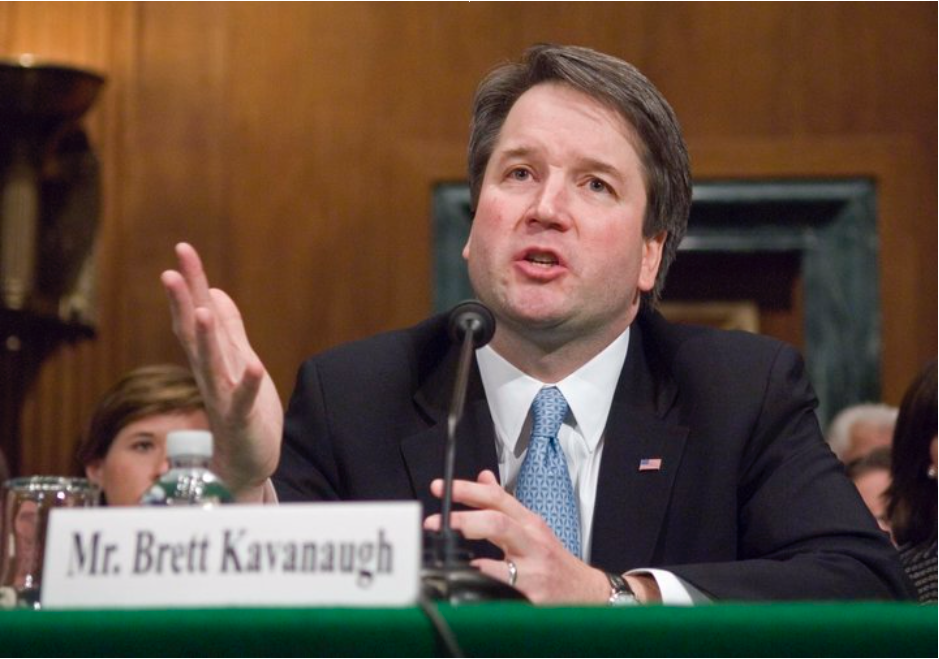CommentsPERSPECTIVE--Recently I had an interchange with a female Ivy League graduate from the 1980's.
As an astute observer of the Kavanaugh/Ford hearing, she remarked, "I cannot speak to the veracity of their comments or the protocol of airing dirty laundry at a confirmation hearing. I do know what I saw, which was a man who was crying like a baby, throwing a tantrum, dodging questions, and generally openly defiant to senators questioning him. He was inarticulate at best, rude, reactive, evasive and just not all that impressive for a Supreme Court Justice candidate."
I couldn’t agree more. I find myself contrasting Kavanaugh’s performance with the memo issued to the GOP by the prosecutor Rachel Mitchell. In that document she raises numerous questions about Ford’s testimony, including incompatible gaps in her timeline, inconsistencies in her memory, peculiar omissions, and unfounded assumptions.
One may not agree with Mitchell’s premises and conclusions, but it is, I think fair to say, legally persuading. In the memo she wrote: “A ‘he said, she said’ case is incredibly difficult to prove. But this case is even weaker than that. Dr. Ford identified other witnesses to the event, and those witnesses either refuted her allegations or failed to corroborate them.”
One of those supposed witnesses is Leland Keyser, a lifelong friend of Ms. Ford, whose attorney has stated: “Simply put, Ms. Keyser does not know Mr. Kavanaugh and she has no recollection of ever being at a party or gathering where he was present, with, or without, Dr. Ford...In early July she told the Washington Post that the assault occurred in the “mid-1980s. Later that month, she told Sen. Dianne Feinstein that it occurred in the “early 80s,” and by September, Ms. Ford was convinced that she was attacked in the “summer of 1982.” Mitchell went on to say, “While it is common for victims to be uncertain about dates, Dr. Ford failed to explain how she was suddenly able to narrow the time frame to a particular season and particular year.”
Unlike Mitchell's examination, Kavanaugh’s testimony, on the other hand, lacked a sophisticated legal and philosophical argument all together. Here is a man who graduated Yale cum laude and Yale Law, went on to become a highly respected legal scholar and teacher, and eventually a United States Circuit Judge of the U.S. Court of Appeals for the D.C. Circuit.
Here is man who has decided cases on national security, the First Amendment, extraterritorial jurisdiction, environmental regulation, and separation of powers. Yet when put on the hot seat, in front of millions, he failed wretchedly to come up with a genuine criminal defense. Rather than bedazzle us with his intellect, he opted to have a brawl. Rather than show us why Ford’s allegation is unsubstantiated, riddled with uncertainty, and flat out wrong based on the facts, he equivocated, whined and hurled accusations of his own.
Kavanaugh’s performance may have salvaged Trump’s patronage, but it also revealed a candidate who is not equipped with the emotional stability, political objectivity, and love for the Law that is required of someone destined for the Supreme Court. That’s not moving the goal post. That’s what the game was all about from day one.
Last point. When Judge Kavanaugh told Senator Harris that he did not watch Ford’s testimony, I knew something was wrong. The man is a highly regarded legal expert. Why would he not want to watch her testimony and pick apart every syllable with a fine tooth comb? Who better to create a sound and convincing legal defense than Judge Brett Kavanaugh himself? That’s not what happened.
A sexual assault prosecutor and hired gun from Arizona had to do it for him. That alone should be disqualifying. He looked and sounded like a flustered, small town lawyer trying his first case before a superior and incredulous panel of adjudicators. Where was his skill? Where was his brilliant talent for jurisprudence? Where was his keen wit? Where was the man who deserves to sit on the most prestigious bench in the land?
(George Cassidy Payne is an independent writer, social worker, adjunct professor of philosophy, and domestic violence counselor. He lives and works in Rochester, NY. Payne is a CityWatch contributor.)
-cw


















